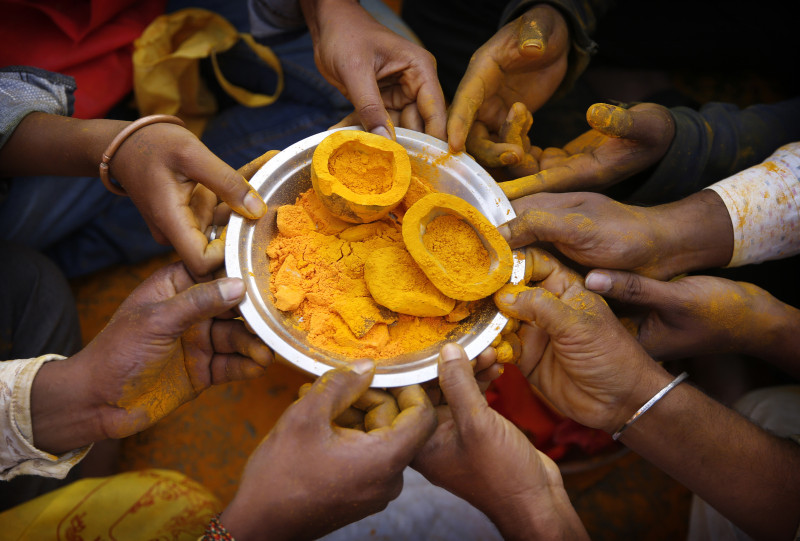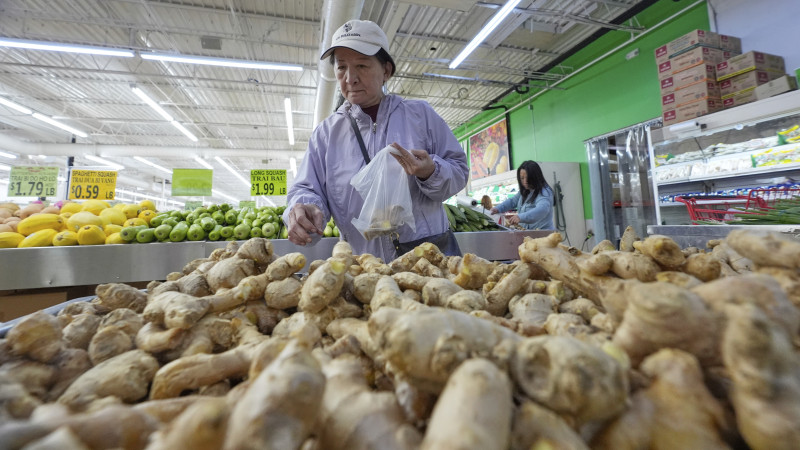Specialist warns of fatal risk of three popular spices as millions of people may be at risk
Three popular household spices, widely used from sweets to foods, may make less effective rescue drugs, warns a specialist in pharmacology.
Cinnamon, turmeric and gingerwhich is said to naturally reduce inflammation and enhance the immune system, can affect the way the body metabolizes a number of medicines, including those for the hypertension, diabetes and common infections.
Recent study found that the main active substance of cinnamon, the cinnamaldehydewhich gives the spice its characteristic aroma and taste, activates receptors that make the body process medicines much faster, thereby reducing their effectiveness.
While those who add a little cinnamon to their breakfast are probably not at risk, those who take cinnamon supplements may be at risk.
“Over -consumption can lead to faster removal of the drug from the body, which may reduce its effectiveness,” scientist Sabana Kan explained.
Studies have shown that for some medicines, such as anticoagulants, the rapid metabolism caused by cinnamon may intensify the action of the drug.
In the case of aspirin and warfarin, this means an increased risk of potentially fatal bleeding, according to Professor of Pharmacy Dipa Camdar of Kingston University.
Experts now point out that the type of cinnamon is also important.
“True” cinnamon, a more expensive version of the spice derived from Sri Lanka, has been linked to a number of health benefits: it is rich in antioxidants, has anti -inflammatory action, helps regulate blood sugar levels and has been found to reduce the risk.
China cinnamon (Cassia), however, which is the one we usually find in supermarkets, contains high levels coumarina substance that can cause liver damage when consumed in large quantities.
Research also shows that cinnamon can interact with other medicines, such as statins and antidepressants, making them either stronger or less effective.
Another common spice that may have undesirable side effects is turmeric, which has previously been associated with cases of liver failure.
THE turmeric It has long been known for its anti -inflammatory properties and is used in various products, from immune to food.
“There is evidence that curcumin, the active ingredient of turmeric, can affect the way in which some drugs are metabolized, intervening in the liver enzymes that process them,” Professor Camdar explained.
Curcumin is the compound that gives turmeric its characteristic intense yellow color.
Professor Kamdar continued: “This means that turmeric could potentially interact with antidepressants, hypertension, anti -cancer regimens and some antibiotics.”
In extreme cases, high doses of curcumin in combination with black pepper, which enhances its absorption by the body, have been linked to severe liver damage.
In a study published in The American Journal of Medicine, researchers examined cases of hepatic damage related to curcuma in the US, between 2004 and 2022.
They discovered 10 cases of liver damage attributed to the spice. Five people were hospitalized, and one person came from acute liver failure.
The British National Health System (NHS) warns that taking herbal supplements can cause unforeseen side effects when combined with other medicines.
Professor Kamdar also assumed that because curcuma has been shown to lower blood sugar levels in experimental animals, it could have a similar effect on humans.
“This means that it can enhance the action of anti -diabetic drugs or insulin.
In addition, turmeric has been shown to reduce blood pressure, which, when combined with pressure on pressure, could cause excessive decline, ”the pharmacist explained.
However, she emphasized that “as with cinnamon, these effects are mainly observed in high doses of supplements and not in the small quantities used in food”.
Ginger is another common spice, known for its anti -emetic and anti -inflammatory properties. However, as Professor Camdar warns, his drastic associations can affect the body’s ability to metabolize medicines.
Some studies indicate that high doses of ginger can reduce blood sugar, thereby enhancing the action of anti -diabetic drugs, with the risk of hypoglycaemia that can be fatal.
Ginger also has mild anticoagulant action, Dr. Camdar added.
“If you are taking medicines, particularly anticoagulants, diabetes or anti -cancer treatments, it is worth talking to your doctor or pharmacist before starting any herbal supplement,” he said.
“For most people, using spices in cooking quantities is safe. So you can use them freely, but carefully in the medicine closet and special reservation against any herbal supplement is taken in high doses. “
According to the NHS, about 350,000 people take anticoagulants each year, which means that millions of people are at risk of hazardous bleeding when combining them with vegetable supplements.
Source :Skai
I have worked in the news industry for over 10 years. I have a vast amount of experience in covering health news. I am also an author at News Bulletin 247. I am highly experienced and knowledgeable in this field. I am a hard worker and always deliver quality work. I am a reliable source of information and always provide accurate information.












